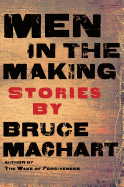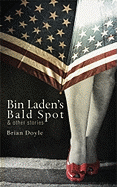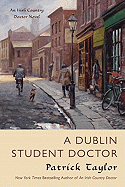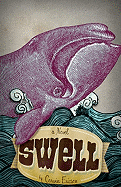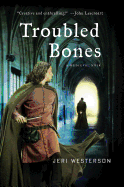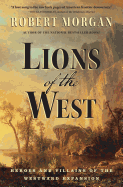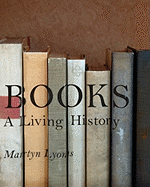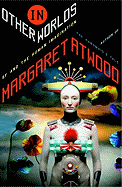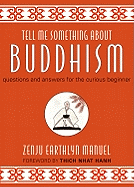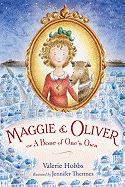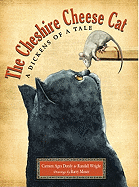"Does not disappoint." Such a mild phrase, but used so often in book reviews as high praise, as if the reviewer didn't want to jinx the book by saying "brilliant" or "inspired." "Does not disappoint" can be effective when evaluating a book in a series or a sophomore effort from a novelist, because the opportunities for disappointment are rife. This fall, I have read some books that not only did not disappoint, but that raised the bar for the next work from the authors.
Starting with Lee Child and The Affair (Delacorte), which is a prequel to his Jack Reacher series. Prequels are notoriously iffy, often just an attempt to cash in on popularity, but The Affair is top-notch--we see Reacher in the army, find out why he left, and why he travels with only a folding toothbrush. Last year, Bruce Machart came out with The Wake of Forgiveness (Houghton Mifflin Harcourt), a marvel of a book, and he's followed it with a story collection, Men in the Making (Houghton Mifflin Harcourt), that is just as superb (see review below). December brings Egypt: The Book of Chaos by Nick Drake (Harper), which is the final volume in his Ancient Egyptian trilogy featuring chief detective Rai Rahotep of Thebes. The first two--Nefertiti, Tutankhamun--were fascinating mysteries based on historical fact, atmospheric, poetic and witty. Egypt presents the reader with a delicious dilemma: read it on one gulp or prolong the enjoyment over days? It may be the last of Rahotep, but the books are so good they warrant rereading. Another book that I will be rereading is Wicked Autumn by G.M. Malliet (Minotaur), a delectable mystery starring Max Tudor, late of MI5, now a vicar in an idyllic English village. Of course, the village is not so idyllic, and the ironic humor is dazzling. It's the first in a series that I am sure won't disappoint.
Do you have books that did not disappoint? If so, please send me an e-mail about them. --Marilyn Dahl
Shards
by Ismet Prcic
Ismet Prcic's frequently brilliant novel in fragments, Shards, opens with a plane full of Bosnian refugees arriving at Kennedy airport. The 18-year-old narrator has escaped from Bosnia as a member of the Torso Theater, where he undergoes fanatically intense, quasi-religious rehearsals to the sounds of Vangelis, until his troupe is invited to perform in an Edinburgh arts festival. He escapes to New York and from there goes to Los Angeles, where he changes his name to Izzy, braced to encounter all the violent stereotypes of American movies.
Interspersed throughout Ismet's narrative are chapters from an alternate story about Mustafa Nalic, a 17-year-old who does not escape to America, who disrupts his military physical exam with a comedy of farting, who becomes a soldier as Yugoslavia rips apart, whose family is tortured by invading Chetniks, and who may be in a mental hospital at the novel's end.
Prcic warns, "There is no one solution. Everything's up for interpretation." Part One resolves on a thoughtful and haunting note, but Parts Two and Three, much briefer, are not so satisfying. The last 80 pages crumble into delirious fragments and hallucinatory confusion, culminating in a nightmarish hospital scene where there's no telling the living from the dead.
Prcic has pieced together a young man's story from the torn and exploded remains of his former life, and the sheer power of his language leaves the reader shaken. --Nick DiMartino, Nick's Picks, University Book Store, Seattle
Discover: Fragments piece together two Bosnian lives: a young man who manages to escape from his war-torn homeland and another who fights in the war and ends up in a mental institution.
Men in the Making: Stories
by Bruce Machart
Bruce Machart warns you in the first paragraph of the first story: the dog dies. Ten pages later, you know how; you also suspect that this slim collection of 10 short stories will present more grief, more humanity, more gasps of shock and understanding than you'd expect from only Machart's second book (after the novel The Wake of Forgiveness). And you'd be right.
These men--and boys--are in the making, while debarking logs in an Arkansas mill, mourning the loss of a stillborn daughter, grappling with a hate crime that's turned a small East Texas town into a symbol of racial violence or cradling a two-week old whose mother was killed in a parking lot robbery. Their hardscrabble lives don't preclude passion, tenderness and stamina for doing what's right, not just what needs to be done. "Six months back, after Tricky's first couple chemo sessions," Machart writes in one story, "all the boys of the pipe fitters' local shaved their heads. It was a hard man's breed of brotherhood... and when he saw them his eyes filled with a liquid look of something like love."
His men may be "rough-hewn and heavy" but they "aren't afraid to keep something tender beneath their rib cages, and to expose it to the elements when the occasion calls for it, no matter how it hurts." Men in the Making presents tightly written characters and images that remind readers why short stories are often literary gems. --Cheryl Krocker McKeon, bookseller
Discover: In Machart's pithy stories, characters come to unforgettable life in just a few pages.
Bin Laden's Bald Spot: & Other Stories
by Brian Doyle
In typical Brian Doyle (Mink River) style, these stories invite you to clamber aboard and enjoy the ride. In the title story we learn that Bin Laden has (had) a bald spot shaped just like Iceland, including the Vestfjarda Peninsula to the west. His barber imparts this information along with a description of going to the "cave complex every Wednesday for haircuts," and watching Bin Laden, obsessed with his video appearances, get ready for his next performance. Later in the book, in "Pinching Bernie," he takes on Bernard Francis Cardinal Law. While Archbishop of Boston, Law "kept shuffling the rapists around from job to job and denying everything while they were raping kids in sacristies and chapels and hospital rooms and classrooms and basements and cellars and billiard rooms and rectories...." Doyle has his way with these two criminals, clearly reminding the reader how despicable they are.
All 25 stories are filled with great voices, great moments and odd happenings: the man who was born on a Greyhound bus and eventually bought the company; Joseph Kennedy, telling all to a golf course bartender just minutes before the stroke that rendered him speechless; a man who takes up running to try to forget that his wife is having an affair and discovers that all the other runners on the street are also cuckolds. This is vintage Doyle, and it doesn't get much better. --Valerie Ryan, Cannon Beach Book Company, Ore.
Discover: Twenty-five stories from the febrile imagination of Brian Doyle, unique and memorable.
A Dublin Student Doctor: An Irish Country Novel
by Patrick Taylor
Readers of Patrick Taylor's Irish Country novels know that the Irish-Canadian physician has a gift for storytelling. Now, after five novels detailing Fingal Flahertie O'Reilly's general practice in the small Irish village of Ballybucklebo, from his quirky patients to his training of young Dr. Barry Laverty, Taylor turns his attention to Dr. O'Reilly's past. A Dublin Student Doctor focuses on young Fingal's decision to enter the field of medicine, his struggles during his student years to balance his time in training with his other passions (most prominently, rugby and a student nurse named Kitty O'Hallorhan) and the interactions with friends, family and patients that influenced his maturation as a physician.
As with the other books in the series, A Dublin Student Doctor adds to the overall O'Reilly saga, but also stands alone as an engaging and often humorous narrative. Given its setting in Dublin during the 1930s, the story is particularly mindful of the fragility of the times--the recent Great Depression, the fight for Irish independence and the hint of war to come. Taylor introduces the book with a thoughtful author's note describing his decision to delve into Dr. O'Reilly's formative years and (as always) ends with a collection of recipes and a glossary that nicely add to the reader's experience. Altogether, it's another well-executed tale in Taylor's delightful series. --Roni K. Devlin, owner of Literary Life Bookstore & More
Discover: An engaging prequel to the Irish Country Doctor series, introducing Fingal O'Reilly as a medical student in 1930s Dublin.
Swell
by Corwin Ericson
Corwin Ericson's debut novel, Swell, is a raucous tale of irascible skippers, sea gum dealers, Nordic witches and whale-herding bear grooms. Orange Whippey just can't catch a break: an amiable bum, he avoids neither work nor mayhem as he stumbles upon international intrigue right in the heart of hardscrabble Down East. Pressed into service as bagman to a Korean smuggling ring, Whippey is trapped in the crossfire of warring factions when he is suspected of stealing the "sampo," a gift of supernatural import. Ericson's storytelling style is strongly reminiscent of Tom Robbins, but there is also a splash of Douglas Adams, for Whippey, like Arthur Dent in The Hitchhiker's Guide to the Galaxy, is a man to whom outrageous and frequently unfortunate things happen.
Like an amusement park ride, the plot is full of highs and lows and unforeseen twists. Though the finale is a bit of a letdown, all in all, it's still worth the price of a ticket. Ericson's talent lies in his ability to teeter on the edge of the absurd without getting bogged down in the ridiculous. When not delving into cryptic Lapland mythos, he does his best to deconstruct all things New England to hilarious effect. His melding of Down East lore with Finnish legend--a less discordant mix than you'd expect--will have the reader of undisciplined curiosity running to Wikipedia, but the wise will just sit back and enjoy the long, strange trip. --Tom Lavoie, former publisher
Discover: A whale of a tale from deepest, darkest Down East.
Mystery & Thriller
Troubled Bones: A Medieval Noir
by Jeri Westerson
Troubled Bones is the fourth offering in Jeri Westerson's Medieval Noir series featuring degraded knight Crispin Guest. Years ago, Crispin was snared in a false treason plot contrived by his lord, the Duke of Lancaster, to out the religious heterodox; Crispin made the mistake of staying loyal to the Duke and was subsequently stripped of his title and holdings, forced to make his living as a Tracker, a finder of things and people. Joining him in this work is his adolescent apprentice, Jack Tucker, whom Crispin saved from Newgate Prison (back in The Demon's Parchment).
A Pardoner, a Miller, a Prioress, a Summoner, a Manciple and a Wife of Bath make a pilgrimage to Canterbury: sound familiar? Westerson has taken Chaucer's characters--and the poet himself, cast as an old friend of Crispin's--and seamlessly woven her own mystery around them. The Prioress and Sir Philip Bonefey are feuding over 10 disputed acres, formerly Bonefey's but recently ceded to the Prioress's House by an ecclesiastical court headed by Archbishop Courtenay of Canterbury. There's a murder, then a second, and soon readers are pulled into a tangle of heretical movements, court intrigue, crooked master stonemasons and the missing bones of the blessed martyr Thomas à Becket (if they're really missing, that is). Aficionados of medieval murder mysteries will delight in Westerson's accurate period details and an intriguing plot guaranteed to keep the reader guessing into the night. --Judith Hawkins-Tillirson, proprietress, Wyrdhoard Books, and blogger at Still Working for Books
Discover: An intriguing mystery involving a disgraced knight, Chaucer, assorted pilgrims and missing bones.
History
Lions of the West
by Robert Morgan
In Lions of the West, award-winning author Robert Morgan (Gap Creek; Boon) tells the story of the American march to the Pacific Ocean through the lives of nine men, including Thomas Jefferson and Johnny Appleseed.
Although Morgan devotes each chapter to a specific player, he emphasizes the connections between individuals and events, and ties it all together in an easy-to-read, attention-grabbing style.
Morgan succeeds in his goal "to create a living sense of the westward expansion" by keeping the focus of Lions of the West wide enough to discuss a variety of issues, such as Andrew Jackson's despicable treatment of the Creeks and Kit Carson's and John Frémont's odd codependency, as well as how David Crockett developed his marksmanship skills and why mules were the animals of choice for Indian scouts.
The best and the worst in American life can be seen in the winning of the West. The seemingly unclaimed lands promised opportunity, but the westward journey also created a sense of entitlement. As U.S. citizens moved onto the plains and beyond, they settled wherever there was good land or good game, without regard to national boundaries. Indeed, as Morgan notes, the federal government "only followed and made official what the vast movements of the rapidly growing population to the west had already made fact." Mexicans and Native Americans had decidedly different viewpoints.
It's fitting that Morgan closes with John Quincy Adams, one of the few people to have witnessed--firsthand or through his parents--the growth of the continental United States from the 13 colonies to the Mexican Cession. Just 14 months after Adams's death, gold was discovered at Sutter's Mill, leading to California statehood and rumblings of civil war. --Candace B. Levy, freelance editor blogging at Beth Fish Reads
Discover: History as it should be told: through colorful biographical sketches, Morgan presents the unvarnished story of the annexation and settling of the American West.
Books: A Living History
by Martyn Lyons
"A good book is the precious life-blood of a master-spirit," Milton wrote in his Areopagitica, "embalmed and treasured up on purpose to a life beyond life." It's apropos for a book about books to be a handsome book itself, and Martyn Lyons's Books is just that, a gorgeous, illustrated history of what Lyons describes as "one of the most useful, versatile and enduring technologies in history." Besides giving us a visual journey of the book as a beautiful, aesthetic object, he also shows us how influential the book has been in shaping human history for 2,500 years.
From its initial stone representations, to the codex and the illuminated manuscript, and on to mass production thanks to moveable type (which the Chinese used in 1100), one can sometimes overlook just how different history would be if there had been no book or writing. Lyons is very good exploring how the two were inextricably linked. He concisely touches upon all the well-known themes, from books for the masses, the creation of bestsellers, the impact of religious books, the rise of publishers and birth of bookstores. But he also delves into international history to tell us about the flourishing of the ars moriendi ("the art of dying") genre; Russian lubki, or chapbooks; and Japanese ukiyo-e woodblock print books. This is a perfect browsing volume to have on your coffee table. --Thomas Lavoie, former publisher
Discover: An illustrated trip through history as told by books, from the scrolls of the ancient world to the ebook of today.
Essays & Criticism
In Other Worlds: SF and the Human Imagination
by Margaret Atwood
In her introduction to In Other Worlds, Margaret Atwood writes about a review of her 2009 novel, The Year of the Flood, in which Ursula K. Le Guin raised the longstanding accusation that Atwood rejects descriptions of certain of her novels as "science fiction" because she wants to be taken seriously by the literary establishment. Not so, Atwood protests: stories like Oryx and Crake or The Handmaid's Tale aren't science fiction because they describe "things that really could happen but just hadn't completely happened when the authors wrote the books" rather than thoroughly impossible events.
Despite her demurrals over writing science fiction, however, Atwood does lay claim to a "lifelong relationship with [the] literary form," and the essays of In Other Worlds explore that relationship in various ways. The first section, based on university lectures she gave in 2010, is broadly theoretical; she proposes, for example, that maybe we set stories in outer space because we've been through all the unknown regions of this world. Then there's a set of book reviews and essays that range in subject matter from the anthropological underpinnings of Le Guin's fiction to the origins of the mad scientist archetype in Gulliver's Travels, followed by examples of Atwood's efforts at writing science fiction in miniature.
Atwood's scattered impressions are interesting, and if all In Other Worlds does is lead a few readers to track down Marge Piercy's Woman on the Edge of Time or discover the joys of unabridged Jonathan Swift or to set folks straight on how The Handmaid's Tale fits into the dystopian tradition of Orwell and Huxley, that's no small feat. --Ron Hogan, founder of Beatrice.com
Discover: Though it lacks the must-read quality of Atwood's novels, this essay collection has plenty of insights for people (including her fans) who think they don't like science fiction.
Religion
Tell Me Something About Buddhism
by Zenju Earthlyn Manuel
Zenju Earthlyn Manuel is an African-American artist, writer, Congolese drummer--and Soto Zen priest. Tell Me Something About Buddhism approaches Zen from her own singular point of view, addressing the basics of Buddhism (suffering, the Four Noble Truths, meditation, karma, etc.), allowing the reader to see how Manuel lives her Zen and synthesizes it with other spiritual/cultural aspects of her background. Because she explains the deviations well, Manuel can be forgiven for seeming, at times, to reconstruct Buddhism to align with some of her more disparate life experiences. Buddha's meditating under the Bodhi tree, after all, can be seen as a vision quest; he did have near-death experiences; and honoring the ancestors can have a place in Buddhist life.
Manuel touches on some important topics, such as the place of women in a historically patriarchal tradition, and provides a reading list for further exploration. However, it is Manuel's hard-won internalization of Zen in her life that is most touching, and her emphasis on compassion, forgiveness and reconciliation as key to spiritual development can benefit adherents of any spiritual path. Seeing with the heart as a mirror of external life, free from preconceptions and prejudices, is another key concept of the Buddhist path. Manuel is very clear that she is still learning "how to express [herself] with love"; this one task alone can provide anyone with profound life lessons. This slender book is an excellent introduction to Buddhism. --Judith Hawkins-Tillirson, proprietress, Wyrdhoard Books, and blogger at Still Working for Books
Discover: A Buddhist perspective on how approaching even life's most mundane experiences with an open mind and heart can lead to a depth of spiritual growth.
Children's & Young Adult
Maggie & Oliver or A Bone of One's Own
by Valerie Hobbs, illus. by Jennifer Thermes
In a novel told in the dulcet tones of Frances Hodgson Burnett's A Little Princess, Valerie Hobbs (The Last Best Days of Summer) relates the story of orphaned 10-year-old Maggie and a stray pup named Oliver.
Young Maggie's exuberance gets the better of her, and she loses her position as a maid in turn-of-the-20th-century Boston. Even though she must live on the streets, she counts her blessings: a coat, boots, a crust of bread and a locket containing a mysterious woman's photograph. Oliver, a scruffy little dog, simultaneously becomes homeless when his owner dies.
Maggie and Oliver's separate journeys unfold in alternating chapters, but both girl and dog share a kind and irrepressible nature. Maggie briefly finds a job in a sweatshop before getting the boot without pay when child labor authorities catch on. Oliver receives a tasty handout from a fisherman, but later gets captured by a brutish restaurant owner and almost becomes dog stew. Each struggles with cold and starvation until they meet one day in the park and their paths unite. Maggie takes up with a boy, Daniel, who teaches Maggie some unsavory lessons, such as retrieving scraps from dumpsters, while using her for his own dubious plots. He hatches a plan that would fill their bellies, but could also get Maggie in serious trouble. It's Daniel, however, who inadvertently helps solve the riddle of the locket and brings to fruition Maggie and Oliver's destiny.
Jennifer Thermes's drawings, reminiscent of Lois Lenski's work, compliment this classic-feeling novel that is by turns harrowing and uplifting. --Bette Wendell-Branco, bookseller emeritus and reviewer
Discover: Maggie, an orphan, and Oliver, a homeless dog, as they seek food and shelter and eventually find the warmth of both hearth and heart.
The Cheshire Cheese Cat: A Dickens of a Tail
by Carmen Agra Deedy and Randall Wright, illus. by Barry Moser
"He was the best of toms. He was the worst of toms," begins this gentle and clever story of unlikely friendship between a cat, a mouse, a raven and an esteemed Victorian novelist.
Skilley is a street cat with a kind heart--and a secret. After Pinch ("cold-blooded and volatile... not a cat to be trifled with") tells Skilley that the innkeeper at Ye Olde Cheshire Cheese seeks a mouser, Skilley begins angling for the position. But not for the reasons one might think. It's not mice he seeks, but cheese. Pip, the inn's chief mouse, and Skilley strike a deal--the cat will keep the mice safe if they will supply him with Cheshire cheese. Skilley is not the only one with something to hide: "This inn has more secrets than mice." Pip can read and write, for one. For another, there's a raven they keep hidden in the attic who claims to be the property of Queen Victoria. Charles Dickens, a frequent diner at the inn, is onto them all. If only he could come up with an opening line for his new novel.
This is a great rollicking adventure, as natural-born enemies play against type, and everyone's secrets eventually come to light. Children will lap up this tale of friendship and adventure, and adults will be entertained by the plentiful allusions to Dickens and his characters. Barry Moser's charming illustrations of the main characters combined with the commanding storytelling voice to make this a charming read-aloud for the entire family. --Jennifer M. Brown, children's editor, Shelf Awareness
Discover: The clever tale of an unlikely friendship between a cat, a mouse and a raven, and how they unlock Charles Dickens's writer's block.


